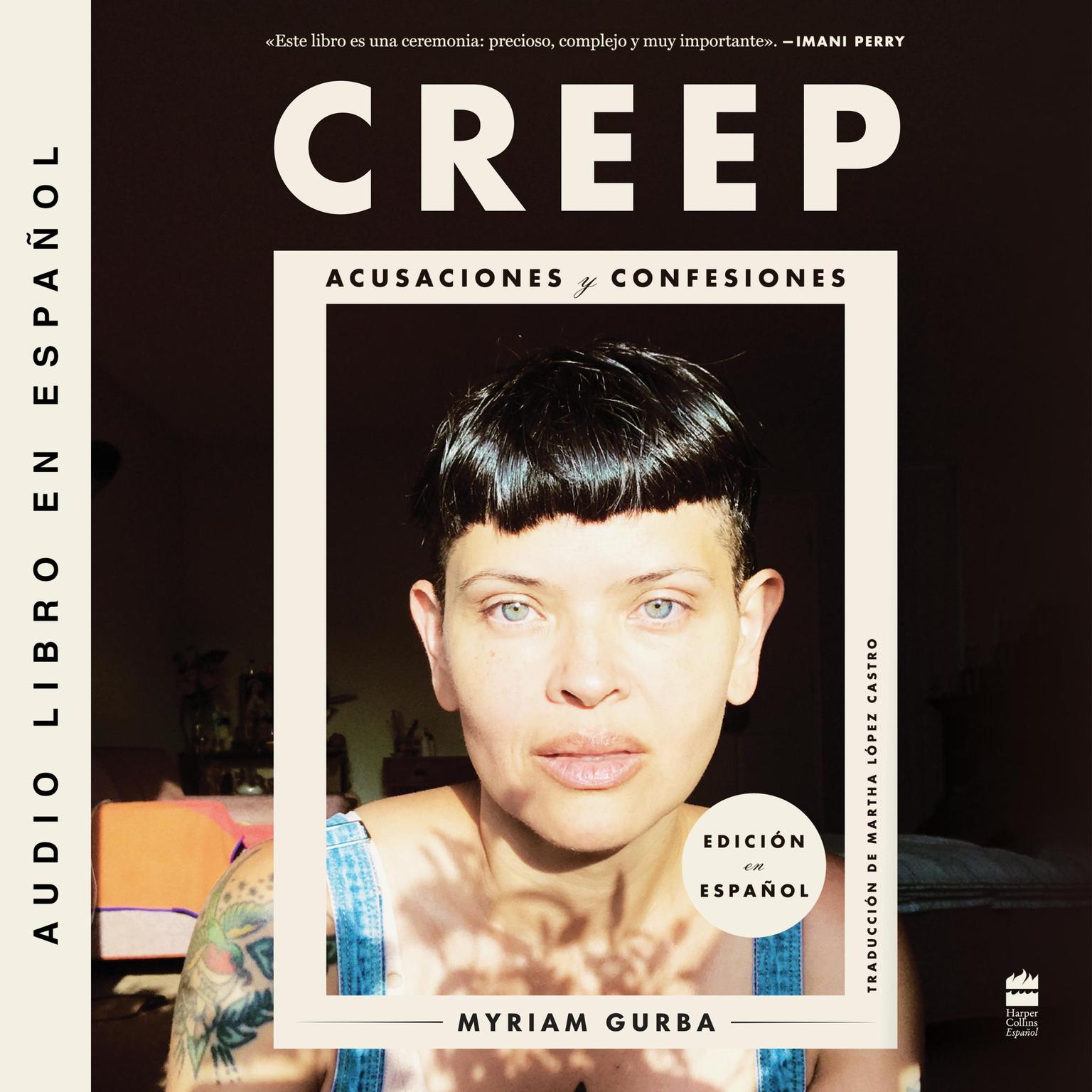 Play Audiobook Sample
Play Audiobook Sample
Creep Creep (Spanish edition): Acusaciones y confesiones Audiobook
 Play Audiobook Sample
Play Audiobook Sample
Quick Stats About this Audiobook
Total Audiobook Chapters:
Longest Chapter Length:
Shortest Chapter Length:
Average Chapter Length:
Audiobooks by this Author:
Publisher Description
De la aclamada autora de Mean (Mala onda), una de las escritoras que con más ferocidad han explorado la identidad latinx desde una perspectiva interseccional, llega esta implacable e incisiva colección de ensayos que confronta la opresión dominante e insidiosa, y la toxicidad que se ha colado en la sociedad: tanto en los libros, las escuelas y los hogares como en los sistemas que la perpetúan.
Un creep puede ser una figura singular, un villano que obliga a las cosas a hacer ruido por la noche. Pero creep es también lo que hace la niebla: acecha para realizar su trabajo sucio, silenciar los gritos, ocultar la verdad y encubrir a aquellos que rondan en su interior.
Creep es la sociología informal de Gurba sobre los creeps, una profunda exploración dentro de los oscuros recovecos de las tradiciones tóxicas que asolan a los Estados Unidos y dan vida a los agresores que invaden nuestros libros, escuelas y hogares. A través de una crítica cultural a modo de ensayos personales, Gurba explora las formas en las que la opresión se propaga colectivamente y sostiene ecosistemas que distribuyen de manera injusta el sufrimiento y la muerte prematura de los más vulnerables. Sin embargo, identificar individuos, grupos sociales y culturas creep es sólo la mitad del proyecto de este libro: la otra mitad consiste en examinar cómo nosotros, en tanto individuos, comunidades e instituciones, podemos desafiar los creeps y deshacer la niebla que pretende cegarnos.
Con implacable agudeza, humor áspero y un estilo atrevido y despiadado, Gurba implica a todos y todo; desde Joan Didion hasta su antiguo agresor, desde los estereotipos mexicanos hasta el sistema carcelario, nadie saldrá indemne.
---
From talented Mexican American writer, story-teller, and visual artist Myriam Gurba comes a brand-new collection of essays that seek to redefine what a ""creep"" is, via cultural criticism disguised as personal essays and seek to redefine accountability, illuminating how social groups create, strengthen, perpetuate, and protect hierarchies which ensnare, harm, and sometimes even kill the subjugated.
Myriam’s new book is an essay collection entitled CREEP (and Other Essays), which aims to be an informal sociology of creeps. Though the term may instantly evoke images of the Harvey Weinsteins of the world—and they are by no means outside of Myriam’s scope—these essays range far and wide to zero in on lesser-known and unexpected creeps like William Burroughs, Joan Didion, the criminal justice system, the public education system, and, yes, even our own publishing industry. Each essay a bullet, Myriam targets and identifies individual creeps, creepy social groups, and creepy cultures. But that’s only half of the book’s taxonomic project. The other half is examining how individuals, communities, and institutions challenge creeps and creepiness.
The essays in CREEP—cultural criticism disguised as personal essay—seek to redefine accountability, illuminating how social groups create, strengthen, perpetuate, and protect hierarchies which ensnare, harm, and sometimes even kill the subjugated. The collection also maps oppression not as an act, but as an environment—the very water we’re swimming in, the air we breathe—that unfairly distributes suffering and premature death to those minoritized by gender, sexual orientation, race, ethnicity, immigration status, age, poverty, and other exploitable differences. Of course, Myriam does it all in the distinctive campy style for which she has become known, propelled by aggressive Chicana wit and an insatiable urge to tip sacred cows.
Download and start listening now!
Creep Creep (Spanish edition) Listener Reviews
Be the first to write a review about this audiobook!




